
ORGANIZATION
ORGANIZING COMMITTEE
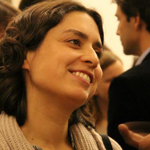 |
Catarina Almeida Catarina Almeida is a PostDoc Researcher Assistant at INEB, the Instituto de Engenharia Biomédica, in Porto. |
| Currently, she is studying the interplay between the inflammatory response and tissue repair/regeneration, focusing on the interactions immune cells – Mesenchymal Stem Cells, in order to develop more efficient regenerative therapies. Catarina has a BSc degree in Biology and during her PhD with Professor Dan Davis, at Imperial College London, she applied imaging technologies to study human NK cell Biology. More recently, Catarina has been performing interdisciplinary research, where she combines her knowledge in Immunology and Cell Biology with the Institute’s expertise in Biomaterials and Tissue Regeneration. | |
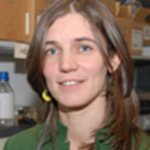 |
Maria JosÉ Oliveira Maria José Oliveira graduated in Biology by the Faculty of Sciences-UPorto in 1996 and completed her PhD degree in Health and Medical Sciences at Ghent University Hospital (Belgium) in July 2004, under the supervision of Prof Marc Mareel. |
| Maria José Oliveira graduated in Biology by the Faculty of Sciences-UPorto in 1996 and completed her PhD degree in Health and Medical Sciences at Ghent University Hospital (Belgium) in July 2004, under the supervision of Prof Marc Mareel. From 2004 to 2007, she performed her PostDoc at IPATIMUP, at the Cancer Genetics Group, under the supervision of Prof. Manuel Sobrinho-Simões and Prof. Raquel Seruca. Under the scope of Ciência2007, Maria José Oliveira initiated at INEB a new line of research, at Prof. Mário Barbosa Group, to understand the role of macrophages and of Extracellular Matrix components on gastric/colorectal cancer invasion, and to dissect the underlying signaling pathways. Her major goal is to use this knowledge to design targeted and efficient therapies to counteract cancer invasion. In 2012, Maria José Oliveira became an investigator FCT and established the Microenvironments in cancer cell invasion Team at INEB. | |
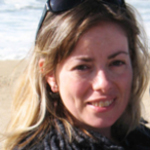 |
Susana Santos Susana G. Santos is an Assistant Investigator at INEB. She did her basic degree in Biology and masters in Molecular Microbiology, at the University of Aveiro, before moving to the University of Porto to do her PhD as part of the G.A.B.B.A. program. |
| She performed her PhD studies in the area of immunology, particularly Major Histocompatibility Complex in T cell biology, in a collaboration between ICBAS and IBMC at the University of Porto, Portugal and the College of Life Sciences at the University of Dundee, in Scotland, UK. After her PhD she worked on the biology of dendritic cells in the Medical School, at St Andrews University and later became a Medical Research Council (MRC) Career Development Fellow, at the MRC-Protein Phosphorylation Unit, at the College of Life Sciences in Dundee, studying different signalling pathways in the immune system. At the end of 2008 she moved back to Porto to work at INEB, as a Ciência 2007 fellow. She has been working on the relation between inflammation and tissue regeneration. Her current research interests are in modulating the immune and inflammatory responses to promote tissue repair/regeneration, and investigating the role of extracellular vesicles (including exosomes) in cell crosstalk during inflammation resolution and tissue regeneration. | |
SCIENTIFIC COMMITTEE
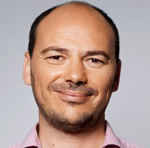 |
LuÍs GraÇa Luis Graça is Associate Professor at the Faculty of Medicine, and Principal Investigator at Instituto de Medicina Molecular, University of Lisbon Medical School. |
| Luis did his MD at the Faculty of Medicine, University of Lisbon, followed by a PhD in Immunology, at the University of Oxford, UK. He then performed his Post-doctoral research at the University of Oxford, UK, and at the University of Western Australia, Perth. He was Co-founder of Acellera Therapeutics and a winner of several prizes, including in 2011 the NEDAI Prize in Autoimmunity Research, in 2010 the Young Entrepreneur Award, from ANJE, an Honorary mention in the ISCTE-IUL MIT-Portugal Venture Competition, and the BES National Innovation Award for Health Technologies, and in 2009 the Idea to Product (I2P) Global Competition 2009, 2nd place, University of Texas at Austin, and the Prof. Heimburger Award in Coagulation Diseases, CSL Behring. Currently Luís Graça group studies mechanisms able to induce and maintain immune tolerance. They study diseases where the immune system has an inappropriate action, such as in autoimmunity, transplantation or allergy. They aim to reprogramme the immune system, inducing the expansion of regulatory T cells capable of reinstating the tolerance state, always striving to validate their experimental results in collaboration with clinical scientists. | |
Manuel Sobrinho-SimÕes Manuel Sobrinho Simões graduated and obtained his PhD from the Faculty of Medicine at University of Porto (FMUP) in 1971 and 1978, respectively. |
|
| He then worked as a Post-Doctoral fellow at the Norwegian Institute for Cancer Research/Radium Hospital, Oslo, Norway, in 1979/80. Manuel Sobrinho Simões led the group that, in 1989, founded IPATIMUP, and has been the Director of the institute since then. He is Professor Catedrático in Anatomic Pathology, and Director of the Pathology and Oncology Department at FMUP. He is also adjunct Professor of Pathology and Cell Biology, at the Jefferson Medical College, Thomas Jefferson University, Philadelphia. He was co-founder and currently Vice-President of the Health Cluster Portugal. Manuel Sobrinho Simões has served in several academic and research bodies, including the European Association for Cancer Prevention (ECP); the European Society of Pathology (ESP), where he was General Secretary, from 1989 to 1997, and President, between 1999 and 2001; the European School of Pathology (EScoP), where he was member of the scientific council and created the Moscow, Ankara, Krakow and Hradec-Kralové divisions of the School. He was also a member of the Advisory Council of Porto 2001 (European Capital of Culture). Manuel Sobrinho Simões was awarded several prizes and honours, including Prémio Bordalo for Science (1996), the Gold Medal of Arouca Municipality (2001), Prémio Seiva for Science (2002) and Prémio Pessoa – National Prize for Culture & Science (2002), Merit Medal of the Portuguese Red Cross (2002), Gold Medal of the City of Porto (2003), Officer and Commander of The Royal Norwegian Order of Merit (2003, 2008) and Great Cross of the Order of Infante D. Henrique (2004). | |
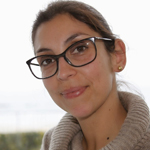 |
Margarida Saraiva Margarida Saraiva obtained a degree in Biochemistry in 1997, by Faculdade de Ciências da Universidade do Porto, Portugal. |
| In 2003, Margarida Saraiva obtained a PhD in Pathology awarded by the University of Cambridge, UK. After 4 years (1999-2002) of research on Poxvirus Immune Evasion, in Antonio Alcami’s lab, at Cambridge University (UK), Margarida Saraiva moved to Anne O’Garra’s lab, at the MRC-National Institute for Medical Research (London), where she investigated the molecular mechanisms that regulate the expression of Interleukin-10 by immune cells. In 2007, Margarida Saraiva returned to Portugal and joined the Life and Health Sciences Research Institute (ICVS) at Universidade do Minho, as a Ciência 2007 fellow. At ICVS, Margarida Saraiva collaborated with teaching Moléculas e Células, Degree in Medicine, School of Health Sciences (ECS), Universidade do Minho, and participated as Organizer and/or lecturer in several courses of the ICVS International Postgraduate Program and the ECS MSc and PhD programmes. Since 2013, Margarida Saraiva is a FCT Associate Investigator. Since June 2015, Margarida Saraiva leads the Immune Regulation group at IBMC. Margarida Saraiva currently serves as board member of the Portuguese Society for Immunology. | |
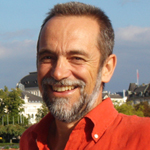 |
MÁrio A. Barbosa Mário A. Barbosa is Professor Catedrático at Instituto de Ciências Biomédicas Abel Salazar (ICBAS), University of Porto. |
| He is the coordinator of i3S – Instituto de Investigação e Inovação em Saúde and at INEB he leads the Microenvironments for New Therapies group. For nearly 30 years biomaterials science and technology is the topic of Mario’s research. He is internationally recognized for his contributions to biomaterials science, particularly in cell-biomaterial interactions. Natural and bioartificial matrices have been extensively studied by his group, with the purpose of delivering cells and proteins, namely in a context of repair/regeneration of tissues. The interaction of cells and proteins with biomaterials at the molecular level has been investigated over more than 10 years. In recent years he has been investigating the interplay between inflammation and tissue regeneration, namely through the use of immunomodulatory microenvironments, including artificial biomimetic matrices. Mário was one of the founding members of Instituto de Engenharia Biomédica. From 2000 to 2012 he was the Scientific Coordinator of the institute and its President between 2000-2006 and 2010-2012. In 2001 he received the George Winter Award of the European Society for Biomaterials and in 2009 the “Corino de Andrade” and “Seeds of Science” Prizes. Mário has also served in several academic and research bodies. For instance, from 1992 to 1994 he was President of the Portuguese national research council, Junta Nacional de Investigação Científica (JNICT). From 2002 to 2005 he was Chairman of the Engineering Sciences Scientific Council of the Foundation for Science and Technology (FCT). | |
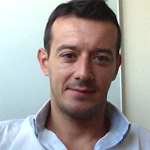 |
Nuno Alves Throughout his career as Immunologist, Nuno Alves has been interested in the mechanisms underlying the homeostasis of T cells, which represent a chief arm of the immune system. |
| During his PhD (2002-2007) at the Academic Medical Centre in Amsterdam, he studied the role of Interleukin 7 (IL-7) and IL-15 in the function of T cells. Next, he initiated an EMBO Postdoctoral Long-Term fellowship (2007-2010) at the Institut Pasteur in Paris. During this time, his research interest has focused on the thymus, the generative organ for T-cell production. Currently, Nuno Alves helds the position of Principal Investigator at the IBMC in Porto. His laboratory is focused on the differentiation of thymic epithelial cells (TECs), which play a prominent role in T-cell development and in the establishment of immune tolerance. Particularly, his group studies aim at studying the cellular and molecular pathways involved in TEC development and function. | |
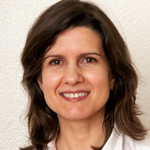 |
Paula Videira Paula Videira is researcher at Nova Medical School, from Universidade NOVA de Lisboa (UNL) and assistant professor at Faculdade de Ciencias Medicas (UNL). |
| She is the group leader of the Glycoimmunology group at CEDOC. Leading in Glycobiology and Immunology, the main goal of her research team is to identify novel therapeutic targets and to integrate this knowledge into the development of novel dendritic cell-based vaccines and antibody-based therapeutic approaches. Paula’s team has contributed to identify the expression of aberrant glycosylation in bladder cancer, and other cancers. Presently, Prof. Videira coordinates multidisciplinary projects in Glycosciences that involve her team, clinicians and Biotechnology and Pharma companies. She has several international collaborations including the Brigham and Women's Hospital - Harvard Institutes of Medicine (USA) as visiting scientist. She has been an active member of the Portuguese Association on Congenital Disorders of Glycosylation (APCDG) presided by Dr. Vanessa Ferreira. Internationally, she has been awarded by the Institute Advanced Study, University of Bologna in Italy, by EMBO- European Molecular Biology Organization, and by the Fulbright Commission. Nationally, she has been awarded by Santander&UNL and Bluepharma&UC awards. Pursuing her dedication to Glycobiology, Prof. Videira is the coordinator of a distinctive International e-learning course in Glycobiology and Glycochemistry. Prof. Videira presently supervises six PhD students and several Master students and post docs. She is an author in more than 46 international peer-review publications. |
|
SYMPOSIUM MANAGER
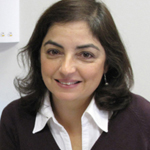 |
Ana Paula Filipe
|
SECRETARIAT
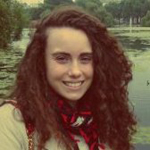 |
Rita Matos i3S-Instituto de Investigação e Inovação em Saúde / IBMC•INEB EMAIL: sicr2015@ineb.up.pt |
DESIGN AND WEBPAGE
Anabela Nunes
i3S-Instituto de Investigação e Inovação em Saúde / IBMC•INEB
Rua do Campo Alegre, 823, 4150-180 Porto - Portugal
Tel +351 226 074 900 . Email: SICR2015@ineb.up.pt